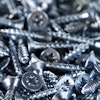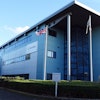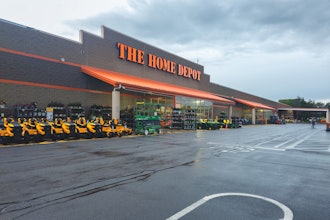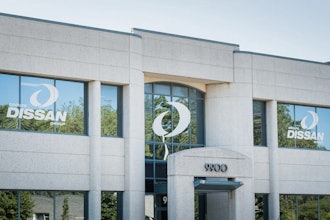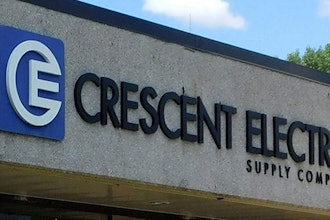Back in 1970s and 80s, I managed a division that manufactured complex machines called palletizers. Our sales organization for the U.S. was independent rep firms, and it worked pretty well. The customers did not know very much about the machines, and they had corporate engineering departments that did the buying and engineering. The rep's job was simple and only required gathering a little information and presenting the factory with a quote.
I returned to Columbia Machine in 1999 as the General Manager of the same division, but found that everything had changed. The Fortune 500 companies (our customers) had completely altered themselves to meet the needs of globalization. They had cut back or eliminated engineering departments, they had developed complicated specifications for their capital purchases, and they relied more on their vendors to do a lot of the pre-sales work. Selling had become very technical and everybody from the customer to the supplier was looking for ways to cut selling costs.
Our existing sales organization was composed of 13 independent rep firms and we were in trouble, struggling to survive in a time of great change. The sales techniques that had worked well in the past for these traditional independent reps weren’t working in this new economic climate. I needed to develop a new approach to our sales channels.
Changes caused by customers/ buyers:
- Customers were driving cost reduction—demanding it from their vendors any way they could. Customers wanted more products and services at lower prices. And "any way they can" means exactly that: if customers think they can eliminate middlemen commissions from the price, they will.
- The buyers were more sophisticated and demanded sales people who could answer all of their technical questions. The reps whose selling efforts were based more on personal selling and relationships to customers were having a lot of trouble. I found that buyers would try and find out what the rep knew in the first 10 minutes. If the rep appeared to know less than the buyer, he would be removed from the selling game.
- The buyers were issuing 50% more specifications with each Request for Quote (RFQ) which increased factory time and the cost of quotations.
- Customers no longer had the central engineering departments they once enjoyed and began relying on the independent reps to do pre-sales layout drawings.
- The multi-national companies would not allow independent reps to call on them at their headquarters. They wanted direct engineer to engineer connection.
- More and more I found that buyers did not want to buy just a machine: they were interested in sales reps that could propose and manage complete systems.
- At the same time, the customers wanted all of the latest PLCs and new purchased technologies on their machines which required a sales person who could communicate with them on all of the new technologies.
From the traditional rep’s point of view things were not going their way. Bob and Bruce Fournier of Jaffco Packaging said that “commissions had gone down, there were fewer exclusive contracts, manufacturers sent out fewer leads, and [customers] want more tasks completed in the selling process for less commission.”
Curt Garrett of Garrett Packaging says “to adapt, the independent reps had to become an integrator and sell systems. This required having a more in depth technical knowledge of packaging machines and an ability to project manage a large contract that integrates all of the machinery in a production line.”
Harry Brown of Mollo and Associates in Erie, Pennsylvania says that the biggest change in selling is that customers want problem solvers and expert advice. He calls the new type of rep a Sales Engineer “who can offer engineering assistance as a ‘freebie’ with the sales package. In addition to the engineering perk, if manufacturing knowledge (experience) is offered it will enhance a long term relationship.” He goes on to say that “being a pleasant person with a great personality will not carry the day in today’s environment.”
From the point of view of the manufacturer, I saw our margins eroding, the increased cost and time of more specifications, and customers wanting more customization at lower prices.
The bottom line: the tasks required to get the sale had changed dramatically and manufacturers were trying to find the right combination of sales channels which could balance selling costs and tasks.
I decided that the best place to begin was to define the sales tasks that needed to be completed in order for the commission to be paid. What follows is a list of the ten most important sales tasks needed to sell capital equipment:
- Pre-sale Information Gathering – the reps needed to do a much better job defining the customer’s products, pallets and specifications to a 99% accuracy.
- Quotations – although the factory did most of the quotes, we needed reps who could develop their own on simpler projects.
- Complex Systems – the ability to present and explain a complex system and supply all of the machines that make up the production line.
- Product Knowledge – I wanted rep firms who would devote the time to become product technical experts and could answer all of the questions at the point of sale.
- The Ability to Sell Systems – it was no longer enough to just sell a machine, we were interested in rep firms who wanted to sell and manage a complete production line.
- AutoCAD – this required the reps to adopt AutoCAD to do the layout of the production line for the customers and the ability to make complex presentations.
- Ability to Train Customers – the reps also had to know the products well enough to train customers.
- Sales Prospecting – find new prospects on their own based on target markets described by the factory marketing plan.
- The Ability to Communicate – reps needed to be able to discuss with the customer on all technical levels of these systems.
- Robots – the ability to also offer robots as an alternative in palletizing.
The key point is that each task costs money. If the sales channel cannot do the task, it will automatically be transferred to the factory or you will lose the order. If the sales channels cannot do some of the tasks (even with good training), then the manufacturer must look for a new sales channel—or modify the amount of commission paid to the channel—for the tasks that are completed.
After a long evaluation only two out of thirteen rep firms were retained with exclusive territory contracts. I called these new independent rep firms specialized reps because they could handle all of the sales tasks as well as a factory salesman, but they were still variable cost.
Two Types of Independent Rep Agencies
All of the changes described earlier were related to the packaging machinery industry, but I know that many other industries with capital equipment experienced the same changes. What is emerging out of the chaos of change are two distinctly different kinds of manufacturing rep firms – specialized reps and general reps.
The general rep firm uses a very different business model. They do not want to invest the time to do all of the sales tasks listed earlier and they make their money by offering a wide variety of products to a wide variety of customers. They are at their best selling standard products that do not require layout drawings and depend a great deal on their existing network of customers.
Two good examples of these new specialized rep firms are Jaffco Inc., where brothers Bob and Bruce Fournier cover the northeast section of the country, and Garret Packaging where Curt Garrett and George Bentz cover the northwest part of the country. Both of these rep agencies saw the changes coming into the packaging machinery industry and changed their companies and strategies to adapt to the new market opportunities.
Specialized reps can be described as rep agencies that understand the technical features of the manufacturers that they represent, while still functioning just like direct factory sales people. Specialized reps can be further described by:
Product Line Synergy – Jaffco does not carry a trunk full of catalogs and brochures of all of their lines because they only represent a few lines that are synergistic. In Jaffco’s case they represent the most important machines in a filling line – fillers, cappers, palletizers and stretch wrap machines. Synergistic means that all of the machines relate to each other and allow them to sell a complete line. More importantly, every time they call on a customer they can sell any of these machines to the same customer. This is a big advantage to the OEMS they represent because it increases the number of sales calls per year.
The synergistic approach is not the normal approach for most reps. General reps usually have a wide range of products to sell into a wide range of markets. It doesn’t mean they can’t be successful but they won’t be able to focus on specific accounts and markets. Also, many of the markets they sell to will not be of interest to some of their OEMS.
Market/Account Synergies – Closely allied to product line synergy is synergy with accounts and markets. Jaffco is very synergistic with most of the OEMS they represent because their products are sold to the same accounts and markets targeted by their OEMS
On the other hand General reps may have a wide variety of product lines they offer and accounts and markets that do not relate to their OEMS targeted accounts, and will spend a lot of time in markets and accounts that are not of interest to many of their OEMS. In trying to represent a great many markets they can only make few sales calls on each. From the beginning, OEMS should sit down with their reps and really analyze the rep’s product lines, accounts, and markets to see if the necessary synergies are there.
Training – Many of the specialized reps got their start working in the factories they represent and learned the machines and applications so well they became experts. Others, like Harry Brown owned a large machine shop for many years and is an expert on machine tools and processes. Still others have learned through technical training supplied by the factory which also made them experts over a period of years.
The specialized rep’s entire approach is based on being a technical expert and it is incumbent on the factories they represent to offer ongoing technical training courses (not sales meetings) to keep them on the “cutting edge” of all products they sell, as well as on new products, attachments, options and applications. The objective is to train the rep to be technically as good as a factory sales person and this takes an ongoing commitment to technical training.
Many general reps do not want to learn about the products in this kind of detail or devote the time to become as good as factory sales people. Many would rather know just enough about the product to be able to close a sale. But the fact is that for many manufacturers of packaging machinery or customized machinery, they have no choice. They will either have to develop a specialized rep firm or hire direct factory sales people for the territories.
More and more packaging machinery manufacturers are going to have to change their sales channels to satisfy the new needs of their customers. Specialized reps are more cost effective than hiring factory direct sales people because they are only paid when they sell something. Specialized reps are only one of the new sales channel models being developed for 21st century customers.
Mike Collins is the author of "Saving American Manufacturing" and its companion book, the "Growth Planning Handbook for Manufacturers." To learn more about the author or these titles, visit http://www.mpcmgt.com/.


